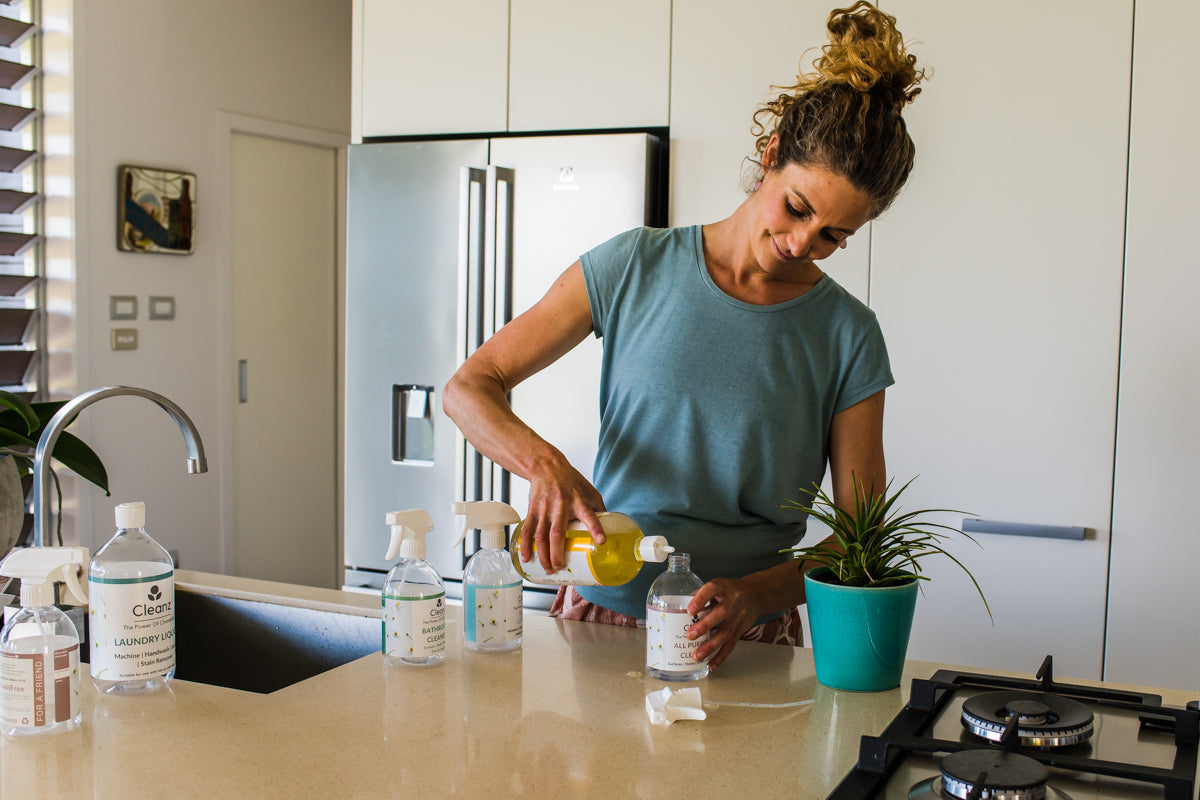FREE NATIONWIDE SHIPPING ON ORDERS $69 AND OVER
FREE NATIONWIDE SHIPPING ON ORDERS $69 AND OVER
Add description, images, menus and links to your mega menu
A column with no settings can be used as a spacer
Link to your collections, sales and even external links
Add up to five columns
Add description, images, menus and links to your mega menu
A column with no settings can be used as a spacer
Link to your collections, sales and even external links
Add up to five columns

Embracing Sustainable Cleaning Habits: Small Steps, Big Impact
September 29, 2023 2 min read
Embracing Sustainable Cleaning Habits: Small Steps, Big Impact
Living sustainably is a responsibility we all share, and bringing sustainable practices into our daily routines is essential for the environment and a healthier future. One aspect often overlooked is our cleaning habits.
Sustainable cleaning habits reduce our environmental footprint and contribute to a safer and healthier living space. Here are several ways to easily integrate sustainable cleaning habits into our daily routines:
1. Mindful Product Selection:
Choosing eco-friendly cleaning products is a step towards a sustainable cleaning routine. Opt for biodegradable cleaning agents such as Cleanz, free of harmful chemicals, and have minimal packaging.
2. DIY Cleaning Solutions:
If you have the time, consider making some of your cleaning solutions using common household ingredients like baking soda, vinegar, and lemon. These natural alternatives are effective and safe. However it is worth noting that these ingredients are mostly very acidic. Lemon, for example, contains a high amount of citric acid and has a pH between 2 and 3, which means it's 10,000–100,000 times more acidic than water. This can have substantial effects on most skin, especially sensitive skin. Cleanz has a PH between 7.5 and 8, which is virtually the same as water.
3. Reduce, Reuse, Recycle:
Adopt the mantra of reduce, reuse, and recycle in your cleaning routine. Reduce waste by using reusable cleaning cloths and sponges instead of disposable ones. Use products that promote a circular economy, such as the Cleanz system, where the spray bottles get used over and over again, and the Concentrate is purchased as a refill.
4. Use Efficient Cleaning Equipment:
Opt for energy-efficient and multi-purpose cleaning appliances. Vacuum cleaners and washing machines with high energy ratings save energy and reduce your overall power bills.
5. Proper Waste Management:
Ensure that you sort your waste into recyclables, compostables, and non-recyclables. This practice reduces the burden on landfills and promotes the efficient reuse of materials.
6. Mindful Consumption:
Consume only what you need. Avoid overbuying cleaning products, which can lead to waste and clutter. Purchase in bulk where possible to reduce packaging waste.
7. Air-Dry Your Laundry:
Whenever possible, air-dry your laundry instead of using a dryer. Not only does this conserve energy, but it also helps preserve the lifespan of your clothes.
8. Regular Maintenance:
Regularly maintain your cleaning tools and appliances to ensure their longevity and efficiency. A well-maintained vacuum or mop will require fewer replacements, reducing waste.
Incorporating sustainable cleaning habits into our daily routines is an achievable goal with far-reaching benefits. We collectively contribute to a more sustainable and eco-friendly world by making small, intentional changes.
These practices positively impact our immediate surroundings and set an example for future generations, emphasizing the importance of caring for our planet through mindful actions.
Leave a comment
Comments will be approved before showing up.

